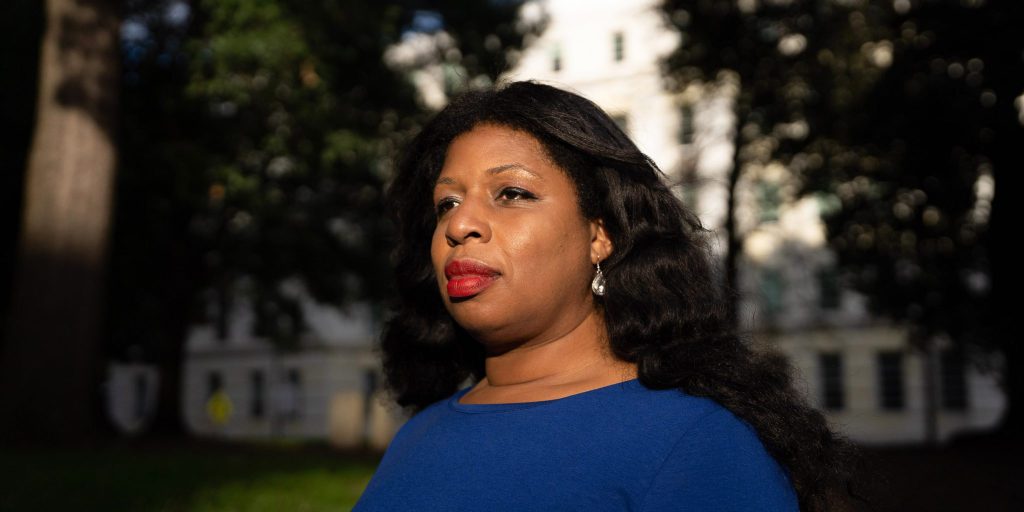
The law promises a “race-neutral” process for choosing juries. Yet, last week, the nation watched as a jury of eleven whites and just one Black person was seated to hear the case of the three white men accused of hunting down and killing Ahmaud Arbery, a Black man who was jogging through a residential neighborhood.
This skewed jury came from a pool that was one quarter Black. But, one by one, almost every person of color was struck. How does this happen?
This week’s excellent story in The Intercept, about North Carolina’s ongoing scourge of racism in jury selection, provides an answer. Black citizens who report for jury duty, particularly in high profile cases, are subjected to a barrage of questions, as prosecutors hunt for any seemingly “race-neutral” reason to strike them.
They once had a negative encounter with police? Strike. They’ve had a family member in prison? Strike. They believe the criminal punishment system is racially discriminatory? Strike.
A rational person might think that having first-hand experience with the ways that racism infects courts and policing would make someone a fairer, more careful juror. These kinds of perspectives could bring needed balance to juries. But the law considers these legitimate, “race-neutral” reasons to exclude people. And (surprise!) almost all the people excluded for their negative law enforcement experiences are Black.
But not every Black juror offers such a simple reason. So prosecutors (and occasionally, as in the Arbery case, defense attorneys) dig deeper for “race-neutral” reasons to strike Black jurors. The reasons often defy logic or carry echoes of racist stereotypes.
The juror rented rather than owned a home, and therefore had a lesser stake in the community. The juror wasn’t registered to vote. The juror wasn’t well dressed. The juror was too young and attractive. The juror attended a historically Black college. The juror was “monosyllabic” when answering yes or no questions. The juror didn’t make eye contact with the prosecutor or had an “air of defiance.”
North Carolina courts have accepted these reasons for strikes of Black jurors as “race neutral,” including in death penalty cases. In one capital case, a prosecutor admitted that he struck two jurors because they were “both Black females.” (It’s also illegal to strike a juror because of gender.) However, the North Carolina courts allowed the strikes because the prosecutor offered a second reason that was not explicitly racist.
The enforcement of the Supreme Court’s decision in Batson v. Kentucky, barring race discrimination in jury selection has become a charade. This is especially true in North Carolina where prosecutors have shared tips on how to strike Black jurors and get away with it. North Carolina is also the only state in the South where the courts have never once overturned a conviction because of discrimination against a juror of color.
The N.C. Supreme Court is currently considering a handful of cases that could finally change this deplorable record, including the case where the two Black women were struck. These cases provide some small measure of hope, but for the most part, they are too little, too late. In each case, the court is considering whether a jury strike is racist years or decades after it happened. Even if the court finds in their favor, the defendants will have spent huge swaths of their lives in prison, and people of color will have been denied their right to participate as citizens in a democracy.
This large-scale failure to ensure diverse juries is one of the major reasons why North Carolina passed the Racial Justice Act. The legislature repealed the law in 2013, but we are still fighting for the right of every person on death row to have their case freshly examined for racism.
Jury discrimination of all kinds must stop, but it’s especially pernicious in cases where a jury decides life and death. No defendant, Black or white, should be put to death by a jury where the voices of people of color were excluded. To achieve true justice, juries need the perspectives of all citizens.


